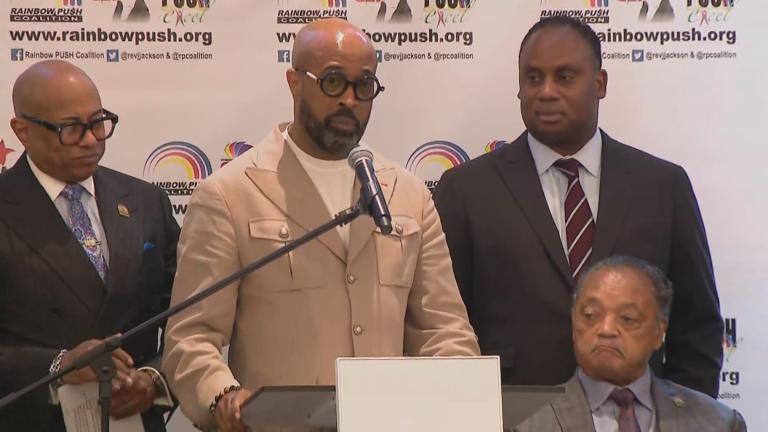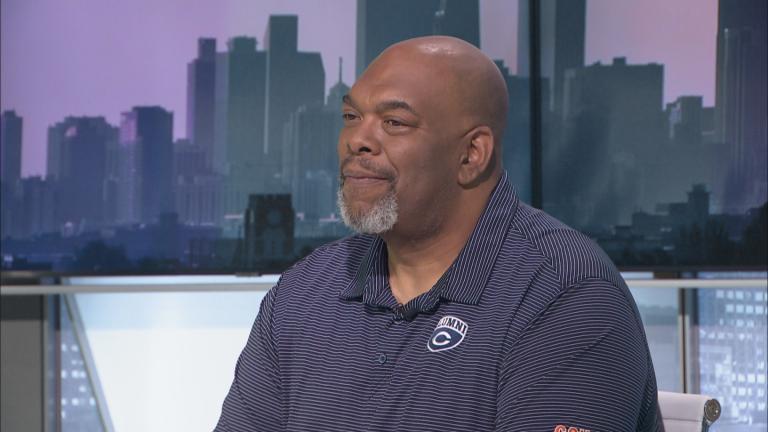Suicide shatters communities any time it happens, but it can be especially devastating when the person who has lost their life is young. Increasingly, Black communities are bearing that terrible burden. The Centers for Disease Control and Prevention said suicide rates increased by 37% for Black people 10 to 24 years old, the highest rise of any category, from 2018 to 2020. A National Institutes of Health study found among children ages 5 to 12, Black children were twice as likely to die by suicide as their White counterparts.
University of Chicago assistant professor Janelle Goodwill researches suicidality among Black young adults. She said that while the increase is alarming, suicide among young Black people has been a longstanding issue.
“I think what people don’t recognize is that suicide has been a serious and leading cause of death among Black males in particular since the 1980s,” Goodwill said. “It’s just in the past recent years that we’re starting to get more attention around this issue, particularly with support from the NIH and even by social media and through support from celebrities. I think that there is just a generational shift and an openness to address these topics publicly. I think that unfortunately, we have seen suicides amongst major celebrities and so that always generates a lot of conversation.”
Across the board, research suggests early intervention can help save lives.
“Whether it’s a school-based intervention or community-based intervention, where families have an opportunity to receive support early on that’s accessible can prove to be fruitful in preventing suicide and other adverse mental health outcomes,” Goodwill said.
Tandra Rutledge is director of youth and campus programs at Soul Shop, which trains church leaders to take a faith-based approach in suicide prevention among their congregations.
“We know that of all the reasons and all the causes for suicide that it really comes down to a loss of hope and a loss of a social connection, connectedness to people,” Rutledge said. “And so what we do at Soul Shop is we try to urge faith leaders to focus on how do we build hope and help people feel connected in community.”
Goodwill said her research suggests that religiosity and faith could have a role in helping young Black adults struggling with thoughts of suicide find hope for the future.
“In a study that I published earlier this year, I collected survey responses from 18- to 30-year-old Black adults in the U.S., and the primary reasons that they reported considering suicide is feeling hopeless about the future and feeling that they could not live up to the expectations of other people,” Goodwill said. “And so when we think about some of the benefits of faith and religiosity, and it’s really obviously important to consider the benefits that religion can provide and promoting hope and a purpose in life.”
Rutledge offered advice on what to look for that might indicate a loved one is having thoughts of suicide.
“You look for changes in people’s mood,” Rutledge said. “You look for changes in what people say or the changes in their talk, you look for changes in behavior. And so, when you look for those things and … you see some of those signs and symptoms and that can alert you to that person experiencing some difficulties. You don’t have to be a trained psychologist or a crisis counselor to check on your friends, to ask them if they’re OK, to say, ‘I’ve noticed some things, I’ve noticed that you’ve been different. I’ve noticed that you’ve been down or sad or anxious. Are you okay?’ Don’t be afraid to have the hard conversation and then know what to do if they say yes and know how to seek hope.”
If you or someone you know is struggling with depression or suicidal ideation, you can call or text 988 to access the 988 Suicide & Crisis Lifeline or find help online at 988lifeline.org.








